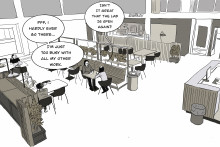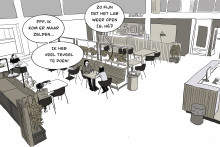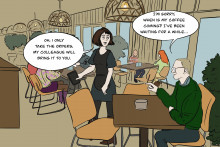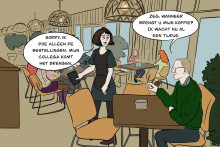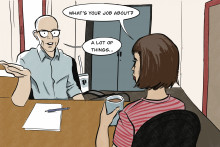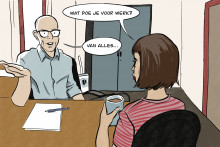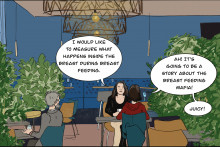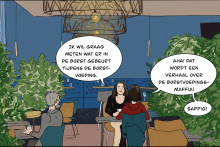People sometimes have the idea that I spend the whole day in the laboratory,' says Sonia Garcia Blanco, an Associate Professor at the Optical Sciences department. 'That is a big misunderstanding. In reality, as Associate Professor, you have to do so many other things that the time you spend in the lab is almost zero. Your students work in the lab and you facilitate.'
Garcia Blanco is always short on time. Her group develops sensors for optical chips that can detect biomarkers. Less than a year ago, she was working on a chip that could detect biomarkers of bladder cancer in urine at an early stage. When the corona crisis broke out, she took to the helm at lightning speed and, with various partners, applied for a European 'corona grant' to apply the same principle to the new disease that is gripping the world.
The optical chip would become a kind of mini test lab that not only detects the coronavirus quickly, but also antibodies and cytokines (molecules that play a role in the immune system). The concentration of all these substances would also be detectable. For a few weeks, Garcia Blanco worked overtime to get the proposal to Brussels in time. Unfortunately to no avail. 'We were among the top 8% of all proposals, we were almost there.'

That is how it often is in science, she knows by now. 'As an Associate Professor, you are a kind of entrepreneur, so you write which research is needed for which application. You have to apply for grants, get money, teach, take part in all kinds of organisational meetings at the university. And in all these areas, you have to try to score high; you have to be good at everything. There are only so many hours a week. So when people talk about the laboratory, I think: I hardly have time to greet my colleagues!'
How different that was when she spent much of her time in the laboratory as a PhD student. 'You always have different concerns at different stages of your career. As a PhD student, you are very stressed because you have to complete a dissertation. I didn't realise how much work my supervisors had to do. If they didn't come to the lab often enough, or if they didn't have enough time for me, I always thought: what are they doing, they're never there! Now I understand that.'
Although she missed out on the European grant, a smaller contribution from the MESA+ Institute gave her research a nice boost. By now she is already busy with the next grant proposal.
'Sometimes I think I have to wipe my diary clean, so that I can go to the lab at least once a week to do more technical work. I try it for a while and then I drown in the work again: this proposal has yet to be written, otherwise you won't get a grant. And if you don't get a grant, nobody can do any work. I'm not complaining, I love everything I do, but I would also like to have more time to do everything better. I keep struggling to find the right balance.'



